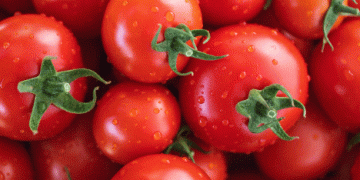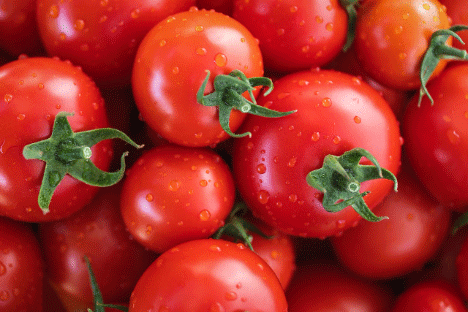Between January and July 2024, Spain experienced a notable growth in its fruit and vegetable imports, which reached a total value of €2.909 billion, marking a 10% increase compared to the same period in 2023. This growth occurred despite a slight increase of only 0.4% in the total volume of imports, which reached 2.4 million tons. This trend of higher value with a relatively stable volume suggests an increase in the average import price, which rose by 9%.
Vegetable Imports: The Driving Force
Vegetables played a key role in the growth of Spain’s import market. The first seven months of 2024 saw an 8% increase in the volume of imported vegetables, totaling 1.2 million tons, while the value surged by 15% to €935 million. The increase was largely driven by higher imports of potatoes, which saw a rise of 8.5% in volume (723,218 tons) and a 17% increase in value (€344 million).
Tomatoes, a staple in the Spanish diet, also saw remarkable growth. Import volumes of tomatoes rose by 6% to reach 81,879 tons, while their value increased by 4%, totaling €104 million. This steady rise in tomato imports highlights the increasing domestic demand and the need for supplementary imports despite Spain’s own significant tomato production.
Fruit Imports: Mixed Trends but Strong Avocado Growth
While the overall volume of fruit imports into Spain declined by 6% to 1.3 million tons, the value of fruit imports increased by 7%, reaching €1.973 billion. The rising value of fruit imports can be attributed to high-demand, premium-priced fruits such as avocados, which have shown the most significant growth.
- Avocado imports surged by 13% in value, reaching €345 million, with volumes increasing by 4% to 146,846 tons. This growth reflects the growing popularity of avocados in Spain and across Europe, driven by their nutritional benefits and versatile use in various dishes.
- In contrast, imports of bananas, oranges, and apples declined during the period. Despite being popular fruits in Spain, their reduced imports may indicate either a stronger domestic production or a shift in consumer preferences toward more exotic fruits like avocados.
Implications for the Agricultural Sector
The data from 2024 indicates that Spain’s agricultural import dynamics are shifting. Despite being a major producer of fruits and vegetables, Spain’s reliance on imported products is increasing, particularly for certain vegetables like potatoes and tomatoes. Meanwhile, the demand for high-value fruits like avocados continues to grow. This presents both challenges and opportunities for domestic farmers and agribusinesses to adapt to evolving market demands.
Spain’s fruit and vegetable import market is undergoing significant changes in 2024, with a 10% rise in value driven by both consumer demand and global market conditions. Vegetables, particularly potatoes and tomatoes, are playing a central role in this growth, while premium fruits like avocados are becoming increasingly important in the import landscape. For agricultural stakeholders, understanding these trends is crucial for navigating the shifting dynamics of Spain’s agri-food market.































